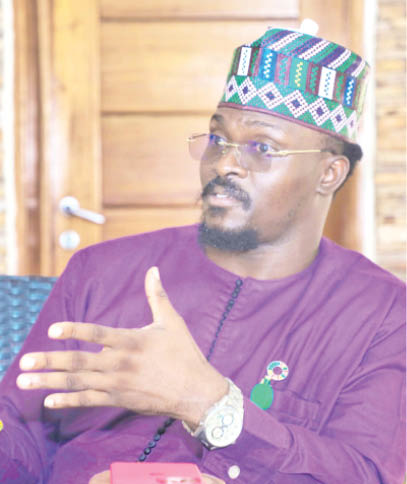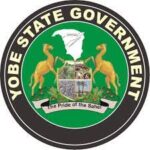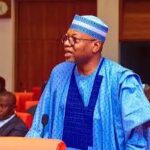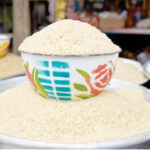Prince Abdulsalami Ladigbolu, a scientist and senior fellow of the United Kingdom Association of Business Executives, is also the Global Director for UNESCO REF TAP Project. In this interview, he speaks on the recent agricultural programme he launched.
You recently launched a programme focusing on young women and agriculture. What informed your desire to consider agriculture as a critical area for this project?
The launching of Young Women in Agriculture in Nigeria, an initiative of the Read and Earn Federation for UNESCO (UNESCO REF), under its Strategic Intervention Programme—ALPHA (SIP-ALPHA), is part of our commitment to contribute our quota towards actualising substantial attainment of the United Nations global goal before or by 2030 with emphasis on goal 2, which aims at achieving “zero hunger”.
You will agree with me that agriculture was the mainstay of Nigeria’s economy before the discovery of crude oil. As such, from 1960 to 1969, the sector accounted for an average of 57 per cent of Gross Domestic Product (GDP) and generated 64.5 per cent of export earnings.
Recognising the key role women play in agriculture, the launching of Young Women in Agriculture in Nigeria could not have come at any better time than now when food insecurity has become a major issue in Nigeria. The Food and Agriculture Organization (FAO) estimates that women make up 43 percent of the agricultural workforce globally. This number goes up to over 60 percent in least developed countries. Despite this key role they play in agricultural development, women have less access to technologies, information, resources, and finance for their agriculture activities across the globe. The cost of the gender productivity gap in agriculture—inequalities in access to and control of productive and financial resources—inhibits agricultural productivity, reduces food security and costs millions to countries.
- Kebbi govt pledges scholarship to 11 school girls rescued from bandits
- Resuscitating Ajaokuta steel, ALSCON, Tinubu’s target legacies – Shettima
In line with the aforementioned, at UNESCO REF, we are optimistic that this transformative approach would enhance the acceleration of past progress made by putting us on track towards achieving the goal of strengthening smallholders, women’s livelihood and resilience in Nigeria, as part of concerted efforts in ensuring food security, addressing food waste and loss, improving food nutrition security and providing them with viable strategies that create real, long-term results for economic development and community stability, while building an ecologically sound future that takes into account the issues of climate change.
Why is the programme targeting only women?
Women are great multiplier and managers when given the necessary tools and conducive environments. Therefore, the equal inclusion of women in all areas of development initiatives will enable them to fully use their potential, creativity, and talent, which are instrumental for the economic development of the country. However, if they are not empowered and allowed to use their potential, the country will not go forward at the expected pace. This is the baseline of Young Women In Agriculture (YWA) Champions Launching in Nigeria and to complement the President of the Federal Republic of Nigeria, Senator Bola Ahmed Tinubu’s mission to enhance the establishment of agricultural hubs in our country as he said in his inaugural speech on May 29, 2023 when he took the oath of office.
What categories of young women do you target and how is the programme going to empower them?
The program targets young women across various sectors, including but not limited to: young women farmers, agripreneurs and agricultural professionals, with the aim to support them actively in engaging in farming activities, providing them with training, resources, and access to markets to enhance their productivity and profitability and also recognizing the importance of empowering young women living in rural areas. By addressing their unique challenges and enhancing their agricultural skills, livelihood opportunities and overall well-being.
How would the participants benefit from the programme and what are the criteria for selecting them?
Participants will receive bespoke training relevant to their immediate environment, agricultural value chain development, agribusiness management and sustainable practices, which will enhance their productivity, efficiency and income-generating potential, with the intention to reduce poverty in the society.
Furthermore, the criteria for selecting participants may vary, but common factors could include their passion for agriculture, commitment to personal and professional growth, and potential to contribute to the sector. We may also consider their existing involvement in agriculture, level of need, geographical representation, and diversity in terms of age, ethnicity, and socio-economic background.
I’m aware that you also initiated a partnership with the Institute of Agriculture Research and Training (IAR&T) in Nigeria. What is the essence of the partnership?
The partnership between UNESCO REF and IAR&T, is a follow up to the launching of the YWA Champions few weeks ago, in the nation’s capital Abuja, and the synergy would serve several purposes: enhancing the National Security through agriculture, enhancing/supporting the Student Loan implementation through agriculture, enhancing the workforce of agriculture and comprehensive advocacy about the diversity and value chain of agriculture in the country to boost forex and GDP. The commitment of both parties will also see through various activities, initiatives and projects related to empowering young women in agriculture.
How are you going to generate the needed funds to successfully execute the programme?
Funding won’t be a problem because YWA Champions is a clarion call and all interested partners come with various commitments for the programme timeline. The launching was majorly facilitated by Nigerians in the Diaspora and we would also like to acknowledge Lady Ogechi Onyeukwu—CEO Women Space United States, for the critical role she played towards investing in Nigeria’s agriculture sector. Above all, the programme is designed to generate funding itself without too much stress.

 Join Daily Trust WhatsApp Community For Quick Access To News and Happenings Around You.
Join Daily Trust WhatsApp Community For Quick Access To News and Happenings Around You.


